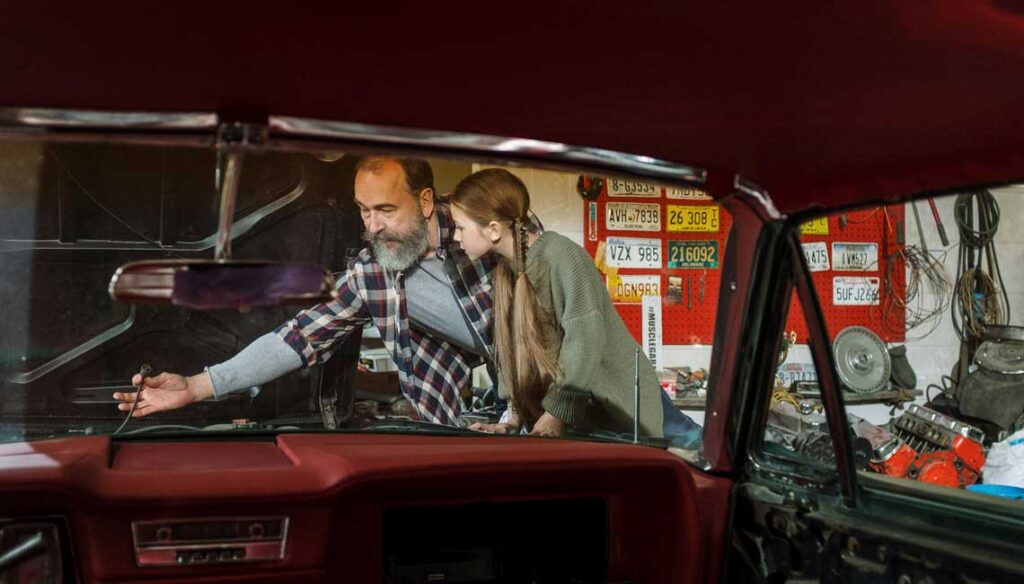
Being parents… each one has to evaluate it, but in general it responds to a very televisual vision of happiness.
Dr. José Antonio García Higuera
In all cultures of the world, the mother represents a fundamental figure in the development of children and is the one who forms the home, her absence for various reasons of life or death represents a void difficult to fill and the father is the one who commonly occupies this space, replaces the mother and fulfills endless responsibilities, in addition to his role as father of the family.
In 1909, William Jackson Smart‘s story inspired Father’s Day‘s creation worldwide. It was an initiative of his daughter, Sonora Smart Dodd when she saw his efforts in caring for her and her five siblings after the death of their mother. The U.S. Civil War veteran dedicated the rest of his life to raising his children and needed recognition, as do all men who care for their families when their mothers are gone. This is how the role of fatherhood has been transformed in most cultures: it is no longer appreciated only as the economic provider of the household, but also as the one who cares for the children’s growth.
Nowadays, single-parent households, that is, where the father or mother takes care of their families alone, are becoming more and more common. This type of fatherhood has transformed the expectations or stereotypes about masculinity, such as an invulnerable figure or one incapable of expressing his emotions in times of pain, frustration, or loss.
The personal emotional management of parents is a great challenge because, according to mental health experts, it is less frequent that they ask for help and face an overwhelming load of activities, which increases stress or the risk of developing addictions. On the other hand, many parents present new attitudes in these circumstances: they attend to the emotional needs of their family, begin to reject sexist, misogynist, and homophobic education, and generate respectful relationships. The change of mentality in these parents and their greater commitment to parenting means an improvement in the self-esteem, autonomy, and independence of their children.
In this month dedicated to fathers, we offer you these #tools of information and suggestions to better understand those who are in charge of the home and the care of children:
- Let us take into account that fathers develop their role at a different time from the mother, as they are spectators during nine months of gestation. Their encounter with their children is at the moment of birth, when their life changes radically, while the mother is transformed at the moment she finds out she is pregnant.
- It has been observed that single-parent families represent diversity in the way of running a household because they adapt to constant changes and overcome losses. Children learn to take responsibility from childhood and overcome the fear of abandonment. They are a new family model that overcomes great challenges.
- Raising and educating children, as well as working and finding recreational time, can be a tough job. Ask for help from family and friends to make life a little more comfortable. It’s not something you’re used to and it’s not a weakness, but we can relearn and find empathy in our community to lead a more pleasant life.
- Education experts say that it is important to look at and recognize the sons and daughters, understand their interests, and personalities, and accept them, that represents the foundation of a good relationship to achieve an environment of happiness.
- Include your children in your work projects, this will develop their ability to identify with your efforts. They will understand you more than you think despite their young age. As it happens in the movie Argentina 1985, by director Santiago Mitre, where a father involves his son who shows curiosity for his high-risk work and finds in that child a great advisor.
- Dads deserve moments of rest and fun. In the city of Houston there is a program specially prepared for them, follow this link.
At Del Pueblo Funeral Home, we believe that fathers are more involved in the development of their children and are increasingly responsible for the growth of their sons and daughters. Single-parent families are a great example to relearn about social relationships and resilience, which is why we joyfully celebrate Father’s Month and remind you that we make the hardest times easy.
